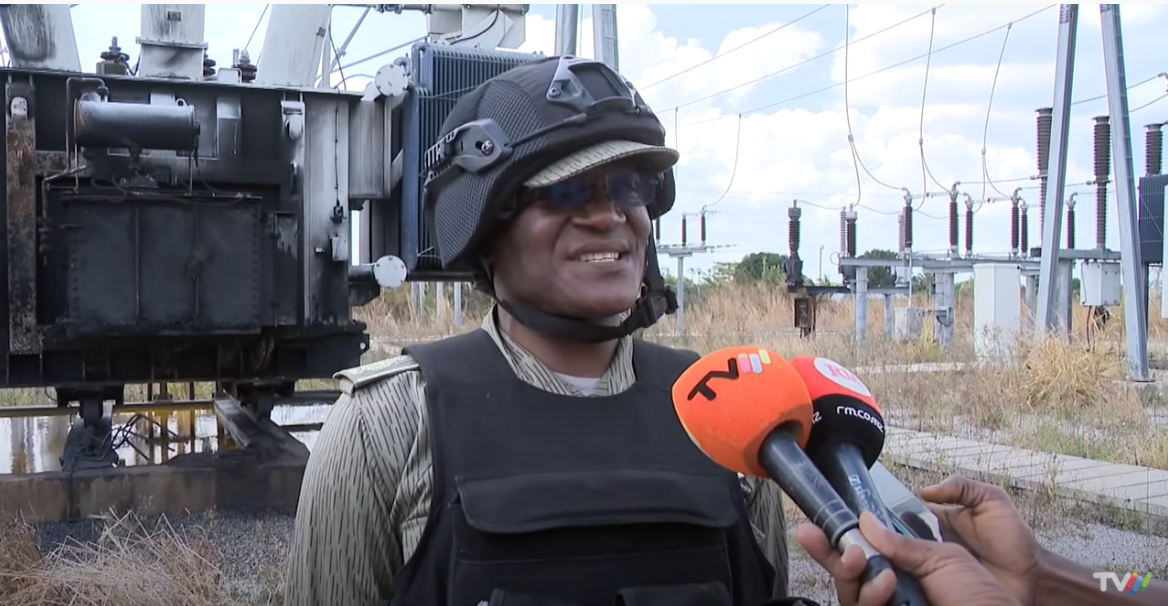Calm is returning to districts in the north of Cabo Delgado that have been affected by terrorist attacks, as foreign troops are providing a level of assurance and security to communities that Mozambique’s forces alone have seemed unable to do.
Around 100 civilians remain in the town of Palma, which was subjected to a series of terrorist attacks starting in late March, and where Rwandan troops now have a strong presence. The residents say they do not plan to leave as they are now convinced that the new security situation means the conflict may be in its final phase, a resident of the nearby village of Quitunda, told Zitamar News.
The civilians, perhaps because they are small in number and also because of the presence of the Rwandan force, are enjoying a peaceful relationship with the national troops and there are no complaints of mistreatment, as was the case before, the source added.
Life in the district of Macomia, also several times targeted by insurgents, is also slowly returning to normal amid an intense movement of national and foreign troops, especially in Macomia town, a local resident told Zitamar.
A covid-19 vaccination center was recently set up aimed at vaccinating, in a first phase, all teachers and former combatants living in the town, said the source, who added that the process is going smoothly.
The process of rehabilitating the town’s infrastructure, destroyed by insurgents during an attack last year, should start on Monday, another local source told Zitamar. Priority will be given to rebuilding the local health centre and the civil registry services in a project financed by the United Nations Development Programme, added the source, who said that local labor will be prioritised for jobs on the project.
The district of Quissanga, which for a long time was abandoned by civilians due to the circulation of the terrorist group, is also receiving returnees in view of the presence of national and foreign forces, a local resident told Zitamar.
In the village 19 de Outubro, civilians have twice received food support from the World Food Program (WFP), said the source who added that goods vehicles and minibuses are frequently passing to and from Macomia town.
Troop numbers are increasing in Quissanga as more foreign forces enter the country, and the local population has been told by the militaries that very soon they will be allowed to go to the agricultural fields, the source said.
Assault on Mocimboa da Praia town
The district of Mocimboa da Praia, considered to be a stronghold of the insurgents, is slowly being retaken by the government. The joint Mozambique-Rwanda force is carrying out combat operations aimed at reaching the district's town, which has been occupied by the insurgents since August last year.
"Our forces are moving towards Mocímboa da Praia (...) and developing successes on the way. They are approaching the town and so far everything seems to be proceeding as planned," Rwanda army spokesman Ronald Rwivanga told Lusa on Thursday.
The villages of Awasse and Diaca are already free from terrorist control thanks to military offensives conducted by the Mozambique-Rwanda joint force. Steps are now being taken towards reestablishing electric power in northern Cabo Delgado, which has been down since terrorists destroyed the substation in Awasse a little over a year ago.
A state electricity utility EDM official told journalists in Awasse that the substation there is damaged beyond repair, so the company will start building a new one as soon as possible.
The military operations carried out in Awasse resulted in the seizure of 19 Ak47-type weapons, 3 bazookas, 15 rockets, a machine gun, and several rounds of ammunition, a military source told Zitamar.
While there are signs the terrorists are now being expelled from the northern districts of Cabo Delgado, displacement from other areas continues and it is unclear whether tens of thousands of displaced people will return to their areas of origin.
Displaced people in the districts of Balama, Namuno and Montepuez are complaining about rising food prices in WFP-accredited stores, which means those holding food aid vouchers can’t now buy as many food products as they’d hoped, several sources told Zitamar.
In Mueda, internally displaced people complain of a lack of water supply, while those in Pemba, the capital of Cabo Delgado province, especially those in the resettlement center located at Ingonane Primary School, say they are drinking brackish water, for which they pay MZN 5 per 20 litres.
This article was produced by Zitamar and Mediafax under the Cabo Ligado project, in collaboration with ACLED. The contents of the article are the sole responsibility of Zitamar News.








